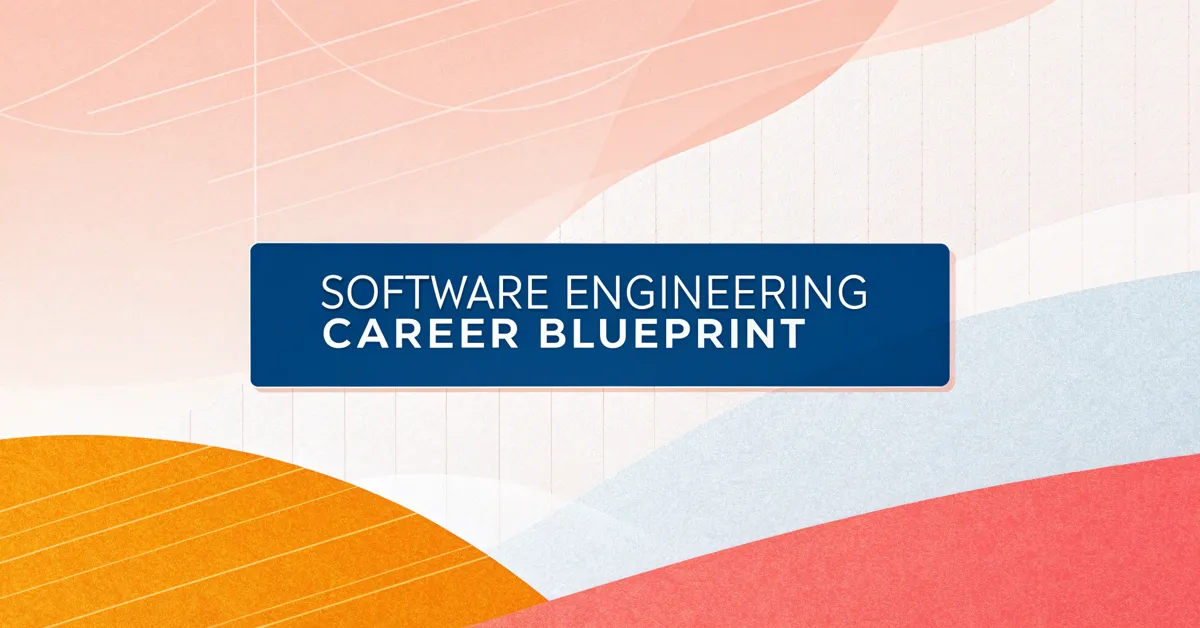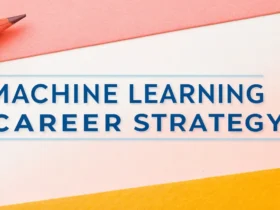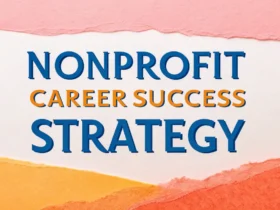The world of tech is vast and ever-changing. Are you a computer science student charting your course? The path to a fulfilling software engineering career can feel like navigating a complex algorithm. Where do you start? What skills do you need? How do you stand out in a competitive field?
This guide serves as your blueprint. We’ll break down the essential elements of a successful software engineering journey. From understanding the core principles to exploring specialized roles and crafting a winning resume, you’ll gain the knowledge and insights to make informed decisions and build a thriving career. This isn’t just about landing a job; it’s about building a future.
Software Engineering: A Solid Foundation
Software engineering is more than just writing code. It’s a discipline rooted in computer science that applies engineering principles to the design, development, testing, and maintenance of software applications. A solid grasp of core concepts is the bedrock of any successful software engineering career.
Core Principles to Master
- Data Structures and Algorithms: Understanding how to organize and manipulate data efficiently is key. This is used in day to day works. Data structures like arrays, linked lists, trees, and graphs, coupled with algorithms for searching, sorting, and traversal, are the tools you’ll use to solve complex problems.
- Object-Oriented Programming (OOP): OOP is a paradigm that revolves around organizing code into reusable “objects” that contain data and behavior. Concepts like encapsulation, inheritance, and polymorphism are used to simplify complex code and promote code reuse.
- Databases and SQL: Most software applications interact with databases to store and retrieve information. Understanding relational database management systems (RDBMS) and SQL (Structured Query Language) is essential for working with data effectively.
- Operating Systems: A foundational understanding of how operating systems manage hardware resources, handle processes, and provide services to applications is very important for developing efficient and reliable software.
- Software Development Life Cycle (SDLC): The SDLC outlines the steps involved in planning, creating, testing, and deploying a software application. Familiarizing yourself with different SDLC models, such as Agile, Waterfall, and Scrum, will help you work effectively in a team environment.
- Version Control Systems (Git): Git is a distributed version control system that allows developers to track changes to their code, collaborate effectively, and revert to previous versions if needed. Mastering Git is vital for any software engineer.
- Testing and Debugging: Writing code is only half the battle; you also need to be able to test it thoroughly and fix any bugs that arise. Learn different testing methodologies, such as unit testing, integration testing, and system testing, and become adept at using debugging tools.
Choosing the Right Programming Language
Picking a good first language is an important step for anyone looking to get into software engineering. While knowing different languages will help you, having a core language in mind will help you pick a path early on. The world of programming languages can seem overwhelming, but selecting the right one can significantly impact your career trajectory. Here’s a glimpse at some popular choices:
- Python: Known for its readability and versatility, Python is an excellent language for beginners. Its wide range of libraries and frameworks makes it suitable for web development, data science, machine learning, and scripting.
- Pros: Easy to learn, large community, versatile applications.
- Cons: Can be slower than compiled languages like C++ or Java.
- Java: A robust and platform-independent language, Java is used extensively in enterprise applications, Android development, and large-scale systems. Its “write once, run anywhere” philosophy makes it a popular choice for cross-platform development.
- Pros: Platform independence, strong community, widely used in enterprise.
- Cons: Can be verbose, steeper learning curve than Python.
- JavaScript: The language of the web, JavaScript is essential for front-end development (creating interactive user interfaces) and increasingly used for back-end development (server-side logic) with Node.js.
- Pros: Essential for web development, large community, growing use in back-end.
- Cons: Can be challenging to master, browser compatibility issues.
- C++: A powerful and efficient language, C++ is often used for system programming, game development, and high-performance applications. It gives fine-grained control over hardware resources.
- Pros: High performance, system-level access, widely used in game development.
- Cons: Steeper learning curve, manual memory management.
- C#: Developed by Microsoft, C# is a versatile language used for building Windows applications, web applications with ASP.NET, and game development with Unity.
- Pros: Strong integration with Microsoft technologies, versatile applications.
- Cons: Primarily tied to the Microsoft ecosystem.
Choosing the right language depends on your interests and career goals. Research different languages, experiment with tutorials, and consider the job market demand for each language in your area.
Carving Your Niche: Exploring Software Engineering Roles
Software engineering is a broad field with many different roles. Focusing on a specific area allows you to develop specialized skills and expertise, making you a more attractive candidate to potential employers.
Front-End Developer
Front-end developers focus on the user interface (UI) and user experience (UX) of web applications. They are responsible for creating visually appealing and interactive websites that are easy to use.
- Key Skills: HTML, CSS, JavaScript, front-end frameworks (React, Angular, Vue.js), responsive design, UI/UX principles.
- Daily Tasks: Writing HTML, CSS, and JavaScript code, implementing UI designs, creating responsive layouts, testing and debugging front-end code.
- Career Path: Front-end Developer -> Senior Front-end Developer -> Front-end Architect/Team Lead.
Back-End Developer
Back-end developers are the architects of the server-side logic that powers web applications. They are responsible for handling data, managing databases, and ensuring the security and performance of the application.
- Key Skills: Server-side languages (Python, Java, Node.js, Ruby), databases (SQL, NoSQL), APIs, cloud computing (AWS, Azure, GCP), DevOps principles.
- Daily Tasks: Writing server-side code, designing and implementing databases, creating and consuming APIs, deploying and managing applications on the cloud.
- Career Path: Back-end Developer -> Senior Back-end Developer -> Back-end Architect/Team Lead.
Full-Stack Developer
Full-stack developers are versatile engineers who can handle both front-end and back-end development. They have a broad understanding of the entire software development stack and can work on any part of the application.
- Key Skills: HTML, CSS, JavaScript, front-end frameworks, server-side languages, databases, APIs, cloud computing, DevOps principles.
- Daily Tasks: Working on both front-end and back-end tasks, designing and implementing features from start to finish, collaborating with other developers and designers.
- Career Path: Full-Stack Developer -> Senior Full-Stack Developer -> Technical Lead/Architect.
Mobile App Developer
Mobile app developers create applications for smartphones and tablets. They may specialize in native development (writing code specifically for iOS or Android) or cross-platform development (using frameworks like React Native or Flutter to create apps that run on both platforms).
- Key Skills: Native iOS (Swift, Objective-C), native Android (Java, Kotlin), cross-platform frameworks (React Native, Flutter), mobile UI/UX principles, mobile testing.
- Daily Tasks: Writing mobile app code, designing and implementing user interfaces, testing and debugging mobile apps, deploying apps to app stores.
- Career Path: Mobile App Developer -> Senior Mobile App Developer -> Mobile Architect/Team Lead.
Data Scientist/Engineer
Data scientists and engineers work with large datasets to extract insights, build machine learning models, and create data-driven applications. They need a strong background in mathematics, statistics, and computer science.
- Key Skills: Programming languages (Python, R), machine learning algorithms, data visualization, databases, cloud computing, big data technologies (Hadoop, Spark).
- Daily Tasks: Collecting and cleaning data, building and training machine learning models, analyzing data to identify trends and insights, creating data visualizations, deploying data-driven applications.
- Career Path: Data Scientist/Engineer -> Senior Data Scientist/Engineer -> Data Architect/Team Lead.
DevOps Engineer
DevOps engineers bridge the gap between development and operations. They automate the software release process, manage infrastructure, and ensure the reliability and scalability of applications.
- Key Skills: Cloud computing (AWS, Azure, GCP), containerization (Docker, Kubernetes), infrastructure as code (Terraform, CloudFormation), continuous integration and continuous delivery (CI/CD), scripting languages (Python, Bash).
- Daily Tasks: Automating software releases, managing cloud infrastructure, monitoring application performance, troubleshooting issues, improving the development process.
- Career Path: DevOps Engineer -> Senior DevOps Engineer -> DevOps Architect/Team Lead.
QA (Quality Assurance) Engineer
QA engineers are the guardians of software quality. They design and execute tests to identify bugs and ensure that software meets the required standards.
- Key Skills: Testing methodologies, test automation tools, bug tracking systems, programming languages (Python, Java), communication skills.
- Daily Tasks: Writing and executing test cases, identifying and reporting bugs, working with developers to fix bugs, automating tests, ensuring software meets quality standards.
- Career Path: QA Engineer -> Senior QA Engineer -> QA Lead/Manager.
Building Your Skills: Education, Projects, and Certifications
A strong academic foundation, combined with hands-on experience and relevant certifications, is essential for launching a successful software engineering career.
Formal Education: Degree or Bootcamp?
- Computer Science Degree: A bachelor’s or master’s degree in computer science provides a comprehensive understanding of the theoretical and practical aspects of software engineering. It covers core concepts like data structures, algorithms, operating systems, and software engineering principles.
- Pros: In-depth knowledge, strong foundation, credibility with employers.
- Cons: Can be time-consuming and expensive, may not always focus on the latest technologies.
- Coding Bootcamps: Coding bootcamps offer intensive, short-term training programs focused on specific technologies and skills. They are designed to quickly equip students with the practical knowledge needed to land a job as a software engineer.
- Pros: Fast-paced, hands-on training, career-focused, can be more affordable than a degree.
- Cons: May not provide the same depth of knowledge as a degree, can be intense and demanding, credibility may vary.
The best choice depends on your learning style, time commitment, and career goals. A degree is a solid foundation, while a bootcamp can provide a faster track to employment.
The Power of Personal Projects
Personal projects are the best way to showcase your skills and passion for software engineering. They demonstrate your ability to apply your knowledge to real-world problems and create something tangible.
- Project Ideas:
- Web Applications: Build a blog, e-commerce site, or social media platform.
- Mobile Apps: Create a to-do list app, a fitness tracker, or a game.
- Data Science Projects: Analyze a dataset, build a machine learning model, or create a data visualization dashboard.
- Open Source Contributions: Contribute to existing open-source projects on GitHub.
- Showcasing Your Projects:
- GitHub: Host your code on GitHub to showcase your coding skills and project structure.
- Portfolio Website: Create a personal website to showcase your projects, skills, and experience.
- Blog Posts: Write blog posts about your projects, the challenges you faced, and the solutions you implemented.
Certifications: Validating Your Expertise
Certifications can demonstrate your proficiency in specific technologies and tools, making you a more attractive candidate to potential employers.
- Popular Certifications:
- AWS Certified Developer: Validates your skills in developing and deploying applications on Amazon Web Services (AWS).
- Microsoft Certified Azure Developer: Demonstrates your expertise in developing and deploying applications on Microsoft Azure.
- Google Cloud Certified Professional Cloud Architect: Validates your skills in designing and implementing cloud solutions on Google Cloud Platform (GCP).
- Certified Scrum Master (CSM): Demonstrates your understanding of Agile and Scrum methodologies.
- Choosing the Right Certifications:
- Align with Your Career Goals: Choose certifications that are relevant to the roles you are interested in.
- Research the Requirements: Understand the prerequisites and exam format for each certification.
- Prepare Thoroughly: Use study guides, practice exams, and online resources to prepare for the certification exam.
Landing the Job: Resume, Interview, and Negotiation
Crafting a compelling resume, excelling in technical interviews, and negotiating a fair salary are essential skills for landing your dream job in software engineering.
Crafting a Winning Resume
- Highlight Your Skills: List your technical skills, programming languages, frameworks, and tools you are proficient in.
- Showcase Your Projects: Include details about your personal projects, contributions to open source, and any relevant work experience.
- Quantify Your Achievements: Use metrics to demonstrate the impact of your work, such as “Improved website performance by 20%” or “Reduced bug count by 15%.”
- Tailor to the Job Description: Customize your resume to match the requirements of each job you apply for.
- Use Action Verbs: Start each bullet point with an action verb to describe your accomplishments, such as “Developed,” “Implemented,” “Designed,” or “Managed.”
- Keep it Concise: Aim for a one-page resume, especially if you are early in your career.
- Proofread Carefully: Ensure your resume is free of grammatical errors and typos.
Cracking the Technical Interview
Technical interviews are designed to assess your problem-solving skills, coding abilities, and understanding of computer science concepts.
- Types of Questions:
- Data Structures and Algorithms: Solve coding challenges that require you to use data structures and algorithms efficiently.
- System Design: Design a scalable and reliable system to meet specific requirements.
- Behavioral Questions: Answer questions about your work experience, teamwork skills, and problem-solving approach.
- Preparation Tips:
- Practice Coding Challenges: Use platforms like LeetCode, HackerRank, and Codewars to practice coding challenges.
- Review Data Structures and Algorithms: Brush up on your knowledge of common data structures and algorithms.
- Understand System Design Principles: Learn about system design principles, such as scalability, reliability, and performance.
- Prepare for Behavioral Questions: Reflect on your past experiences and prepare answers to common behavioral questions.
- Practice Mock Interviews: Practice interviewing with friends, colleagues, or career coaches to get feedback and improve your performance.
Negotiating Your Salary
Negotiating your salary is an important part of accepting a job offer. Researching salary ranges for similar roles in your area, knowing your worth, and being prepared to walk away are key to getting a fair offer.
- Research Salary Ranges: Use websites like Glassdoor, Salary.com, and Payscale to research salary ranges for similar roles in your area.
- Know Your Worth: Consider your skills, experience, and the value you bring to the company when determining your desired salary.
- Be Confident: State your desired salary confidently and be prepared to justify it.
- Be Prepared to Walk Away: If the company is not willing to offer you a fair salary, be prepared to walk away.
- Negotiate Other Benefits: If the company is not able to meet your salary expectations, try negotiating other benefits, such as stock options, vacation time, or remote work flexibility.
Beyond the Basics: Continuous Learning and Growth
The field of software engineering is constantly evolving, so continuous learning and growth are essential for staying relevant and advancing your career.
Staying Up-to-Date with New Technologies
- Follow Industry Blogs and Publications: Subscribe to industry blogs and publications like TechCrunch, Wired, and InfoQ to stay informed about the latest trends and technologies.
- Attend Conferences and Meetups: Attend industry conferences and meetups to learn from experts, network with other professionals, and discover new technologies.
- Take Online Courses and Tutorials: Use online learning platforms like Coursera, Udemy, and edX to take courses and tutorials on new technologies.
- Contribute to Open Source Projects: Contribute to open source projects to gain experience with new technologies and collaborate with other developers.
- Experiment with New Technologies: Set aside time to experiment with new technologies and build personal projects to learn new skills.
The Importance of Networking
Networking is essential for building relationships, finding new opportunities, and advancing your career in software engineering.
- Attend Industry Events: Attend industry conferences, meetups, and workshops to network with other professionals.
- Join Online Communities: Participate in online communities like Stack Overflow, Reddit, and LinkedIn groups to connect with other developers.
- Connect with People on LinkedIn: Connect with people in your field on LinkedIn and reach out to them for informational interviews.
- Attend Career Fairs: Attend career fairs to meet with recruiters and learn about job opportunities.
- Build Relationships: Focus on building genuine relationships with people in your field, rather than just collecting contacts.
Contributing to the Community
Giving back to the software engineering community is a great way to learn, grow, and make a positive impact.
- Mentor Junior Developers: Mentor junior developers to share your knowledge and experience.
- Write Blog Posts and Tutorials: Write blog posts and tutorials to share your expertise with the community.
- Speak at Conferences and Meetups: Speak at conferences and meetups to share your knowledge and insights with a wider audience.
- Contribute to Open Source Projects: Contribute to open source projects to help improve the software that is used by millions of people around the world.
- Volunteer Your Skills: Volunteer your skills to help nonprofits and other organizations with their technology needs.
The Future of Software Engineering: Trends to Watch
The field of software engineering is constantly evolving, and new trends are emerging all the time. Staying aware of these trends can help you prepare for the future and position yourself for success.
Artificial Intelligence (AI) and Machine Learning (ML)
AI and ML are transforming many industries, and software engineering is no exception. AI-powered tools are being used to automate tasks, improve software quality, and create new types of applications.
- Impact on Software Engineering: AI-powered code generation, automated testing, intelligent debugging, predictive maintenance.
- Skills to Develop: Machine learning algorithms, deep learning frameworks, data science skills, AI ethics.
Cloud Computing
Cloud computing has become the standard for software development and deployment. Cloud platforms provide a wide range of services and tools that make it easier to build, deploy, and manage applications.
- Impact on Software Engineering: Serverless computing, microservices architecture, DevOps automation, global scalability.
- Skills to Develop: AWS, Azure, GCP, containerization, infrastructure as code, DevOps principles.
Cybersecurity
As software becomes more critical to our lives, cybersecurity is becoming more important than ever. Software engineers need to be aware of security vulnerabilities and develop secure coding practices to protect against cyberattacks.
- Impact on Software Engineering: Secure coding practices, vulnerability assessment, penetration testing, data encryption, security compliance.
- Skills to Develop: Security protocols, cryptography, network security, application security, security auditing.
Low-Code/No-Code Development
Low-code/no-code platforms allow developers to create applications with minimal coding. These platforms are making it easier for non-programmers to build applications and are accelerating the software development process.
- Impact on Software Engineering: Increased development speed, citizen development, automation of repetitive tasks, reduced reliance on specialized developers.
- Skills to Develop: Low-code/no-code platforms, UI/UX design, business process automation, data integration.
Blockchain Technology
Blockchain technology is revolutionizing many industries, and software engineering is no exception. Blockchain is being used to create secure and transparent applications for finance, supply chain management, and other industries.
- Impact on Software Engineering: Decentralized applications, smart contracts, secure data storage, transparent transactions.
- Skills to Develop: Blockchain protocols, smart contract languages, cryptography, distributed systems.
Is Software Engineering Worth It?
The path to a successful software engineering career isn’t always easy. It takes a lot of hard work, dedication, and a real passion for software and technology. But what can you do to improve and grow into the field?
- Continuous learning is key. Technology changes fast, so you need to stay up-to-date with the latest trends and tools.
- Don’t be afraid to ask for help. Everyone gets stuck sometimes, so don’t hesitate to reach out to colleagues, mentors, or online communities for assistance.
- Celebrate your successes. Software engineering can be challenging, so take the time to acknowledge your accomplishments and reward yourself for your hard work.
With a solid foundation, specialized skills, and a commitment to continuous learning, you can build a long and fulfilling career in software engineering. The demand for skilled software engineers is high, and the opportunities are endless. The tech world is always in need of more software engineers.















Leave a Reply
View Comments